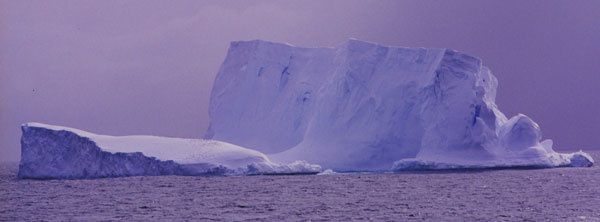Why Don't Antarctic Fish Freeze?

Get the world’s most fascinating discoveries delivered straight to your inbox.
You are now subscribed
Your newsletter sign-up was successful
Want to add more newsletters?

Delivered Daily
Daily Newsletter
Sign up for the latest discoveries, groundbreaking research and fascinating breakthroughs that impact you and the wider world direct to your inbox.

Once a week
Life's Little Mysteries
Feed your curiosity with an exclusive mystery every week, solved with science and delivered direct to your inbox before it's seen anywhere else.

Once a week
How It Works
Sign up to our free science & technology newsletter for your weekly fix of fascinating articles, quick quizzes, amazing images, and more

Delivered daily
Space.com Newsletter
Breaking space news, the latest updates on rocket launches, skywatching events and more!

Once a month
Watch This Space
Sign up to our monthly entertainment newsletter to keep up with all our coverage of the latest sci-fi and space movies, tv shows, games and books.

Once a week
Night Sky This Week
Discover this week's must-see night sky events, moon phases, and stunning astrophotos. Sign up for our skywatching newsletter and explore the universe with us!
Join the club
Get full access to premium articles, exclusive features and a growing list of member rewards.
The frigid waters of the Antarctic Ocean should be cold enough to freeze fish blood. A natural antifreeze however, keeps the fish blood flowing.
The Antarctic Ocean's freezing temperatures of 28.8 degrees Fahrenheit (minus 1.8 degrees Celsius) are lower than the freezing point of fish blood, which is about 30.4 degrees F (minus 0.9 degrees C), which would seem to suggest that all those fish should be frozen in their tracks.
How fish are able to keep moving at these temperatures puzzled researchers for more than 50 years, until special frost protection proteins were found in the blood of the cold-water fish. These so-called antifreeze proteins work better than any household antifreeze at keeping the fish from becoming fish-cicles. How they work, however, has been unclear.
To get to the bottom of this chemical question, scientists studied the antifreeze proteins of the Antarctic toothfish (Dissostichus mawsoni), which one of researchers caught while on an Antarctic expedition.
Scientists used a special technique to record the motion of water molecules mixed with antifreeze proteins from the fish. In the presence of these antifreeze proteins, the water molecules danced a more ordered dance than they otherwise would have. In other words, the antifreeze proteins disturbed the water molecules in such a way that they could not bond together and form ice crystals.
"The disco dance becomes a minuet," said study team member Martina Havenith of the Ruhr University Bochum in Germany.
The study was detailed in the Aug. 16 edition of the Journal of the American Chemical Society.
Get the world’s most fascinating discoveries delivered straight to your inbox.
- When It Comes to Mercury, Saltwater Fish at a Disadvantage
- What Animal Is the Fastest Swimmer?
- What's Sea Ice?
Got a question? Email it to Life's Little Mysteries and we'll try to answer it. Due to the volume of questions, we unfortunately can't reply individually, but we will publish answers to the most intriguing questions, so check back soon.
 Live Science Plus
Live Science Plus












